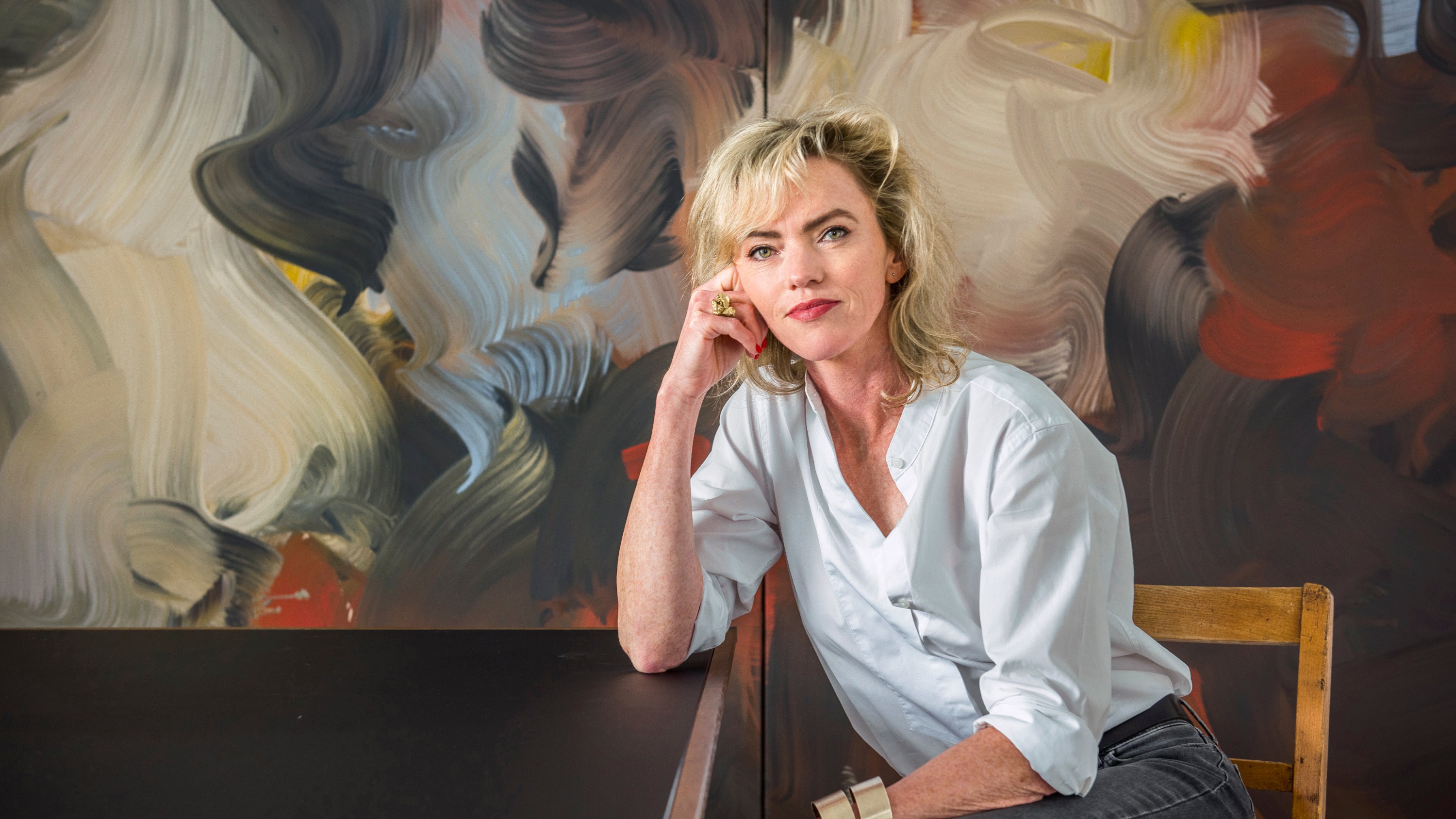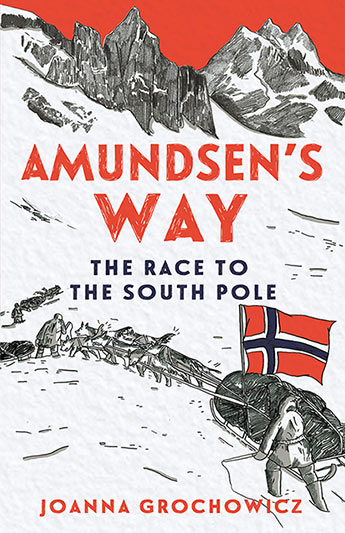Joanna Grochowicz’s second Antarctica-focused non-fiction book for young people has recently been released, and in this installment of The Reckoning, Joanna gives her take on hero-worship, using the protagonist of her new book – Roald Amundsen – to illustrate her point.

We can be heroes, sang the late, great David Bowie. And we are. Each and every one of us is the hero of our own unique story. But how many of us would describe ourselves as heroic? Would we measure up to the heroic archetypes of children’s literature, those exemplary individuals who overcome challenges, confront evil and emerge victorious? Certainly not. We live in the real world, and reality is far more complicated.
Each and every one of us is the hero of our own unique story. But how many of us would describe ourselves as heroic?
Of course, idealised heroes have an important role to play in the stories we tell our children. Often vulnerable or deficient at the outset, these heroes are severely tested, pushed to the brink, forced to make difficult choices. But it’s all for a good cause. Ultimately they emerge better versions of themselves, having undergone personal growth, and achieved moral understanding. The world is set to rights, the covers can be pulled up and the light switched off.
But what about real-life heroes? When we recount tales based on actual events, good and evil are not always clear cut and heroes are first and foremost people – with all their fallibility and flaws. In real life, personal growth does not always follow a definable path. Perhaps it does not happen at all. Sometimes when pushed to the brink, real heroes can present the worst versions of themselves. Does this mean we should avoid sharing their stories? Or worse, offer our children a safer, sanitised version of events?
Sometimes when pushed to the brink, real heroes can present the worst versions of themselves. Does this mean we should avoid sharing their stories?
I believe strongly that, past a certain stage in their development, children should be exposed to tricky heroes. And we as parents, teachers and writers should let go of the reins. What better opportunity to open up a discussion on ethics, to kick start the process of calibrating a child’s moral compass?
As a writer I’m excited by Roald Amundsen; as a mother I’m challenged. Many would find the fact that he chose to work a large number of his dogs to death and then eat them, abhorrent. But for me, the thing that is harder to accept is that Amundsen was willing to lie to his men, only revealing that they were not heading to the Arctic but to Antarctica (a staggering 16,000km further south) once they had set sail from Norway. Deceitful, prideful, bitter, at times ungracious and unjust, Amundsen also displayed on occasion that unforgivable trait – cowardice: instructing his men to undertake the unpleasantness of butchering sledge dogs when he found the task too heartrending.
Would I have liked Roald Amundsen the person? No, I don’t think so. Do I admire him? Hugely. In fact I find myself utterly captivated by this brilliant and uncompromising polar explorer because of his moral ambiguity. He challenges me to assess what I would be prepared to do in order to succeed.
Would I have liked Roald Amundsen the person? No, I don’t think so. Do I admire him? Hugely.
Amundsen’s expedition planning was an exercise in precision. Nothing was left to chance. Once settled on a goal, he followed through with a single-minded focus. From an early age, he set his sights on building a career in exploration, acquiring skills the hard way, at the margins of human survival. The unpleasant, the perilous – Amundsen embraced it all, even signing up to low-status or unpaid positions to gain precious experience. What admirable determination!
A keen mind, an astute strategist, and a fearless adventurer, Amundsen was also an expert at learning from his own mistakes and those of others. Every misstep was an opportunity to refine his thinking and develop areas of personal deficit. For Amundsen, nothing was viewed as failure, it was all experience. Without a doubt, this mindset gave him the necessary edge as he battled both mental and physical fatigue. What inspiring resilience!
Without a doubt, this mindset gave him the necessary edge as he battled both mental and physical fatigue. What inspiring resilience!
Another key to his success was his open attitude to learning from others. The knowledge he acquired while living alongside the Inuit of the Canadian Arctic during his conquest of the Northwest Passage was life-saving. At a time when indigenous cultures were dismissed as primitive, Amundsen recognised the superiority of these cold-climate experts. Narrow-mindedness and prejudice irked him. He would seek assistance from every quarter.
Perhaps the last word should go to the men that knew Amundsen best. They trusted their leader’s judgement and, when given the choice to turn back, chose instead to follow him to the ends of the earth. Their devotion is a testament to Roald Amundsen’s character and his skills as a leader. He may have eaten his dogs but did he care greatly for his men and strive to ensure their safety at all times? Indeed, he did.
Truthful representations are important. Heroes are complex. They are not higher beings. They fail, they stumble and sometimes even disappoint. But examining the accomplishments of individuals like Amundsen proves instructive. Particularly for children.
Truthful representations are important. Heroes are complex. They are not higher beings. They fail, they stumble and sometimes even disappoint.
It is important to point out that people on the edge are often pushed to extremes of behaviour. Physical and mental strain often lead to sub-optimal decision making. But context is everything. We are all victims of time and place. We are all guilty of irritability, selfishness and impatience. Why not our heroes? Do Amundsen’s faults diminish his achievements? Certainly not. Do they make him more relatable? Absolutely. Above all, his shortcomings and moral lapses should make us believe all the more fervently in his humanity and the notion that we can be heroes too.

Editors’ note: The Reckoning is a regular column where children’s literature experts air their thoughts, views and grievances. They’re not necessarily the views of the editors or our readers. We would love to hear your response to any of The Reckonings – join in the discussion over on Facebook.

Joanna Grochowicz
Joanna Grochowicz is an author and polar historian. Fast-paced and exquisitely written, her novels of early exploration reveal in fascinating detail the human aspirations and tragedies that have shaped our understanding of the polar regions. Drawing on diaries, letters and expedition narratives from archives and personal collections around the world, Grochowicz brings to light new and often overlooked elements of heroic age exploration. Realistic portrayals of historical figures and the interplay of personalities lend her work a grittiness and authenticity that is not often present in historical writing for children and young adults.



